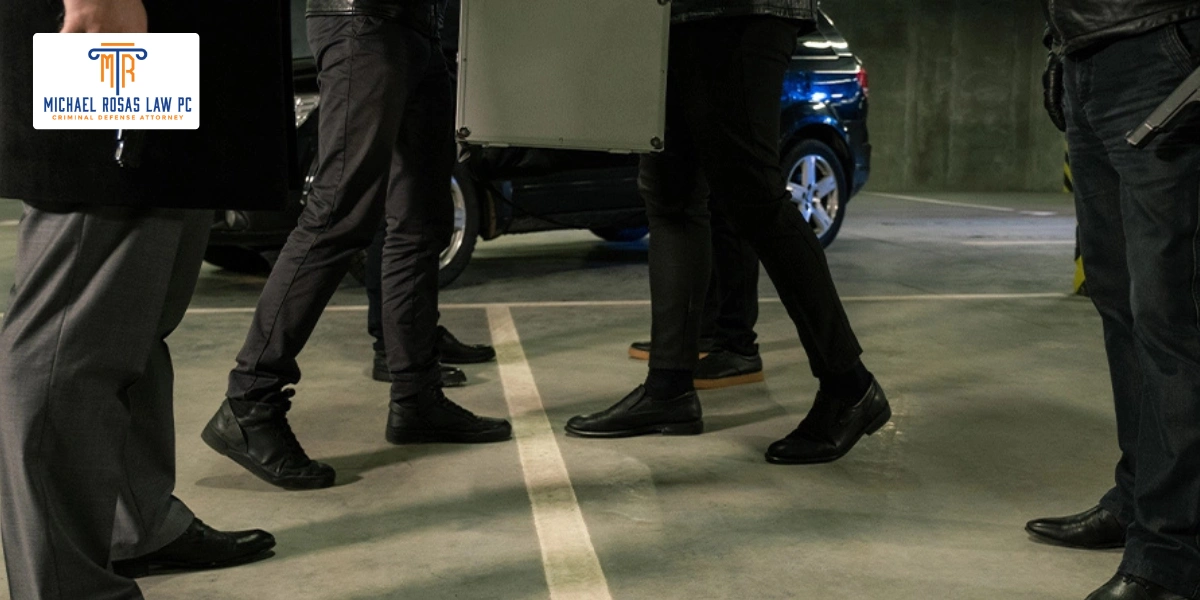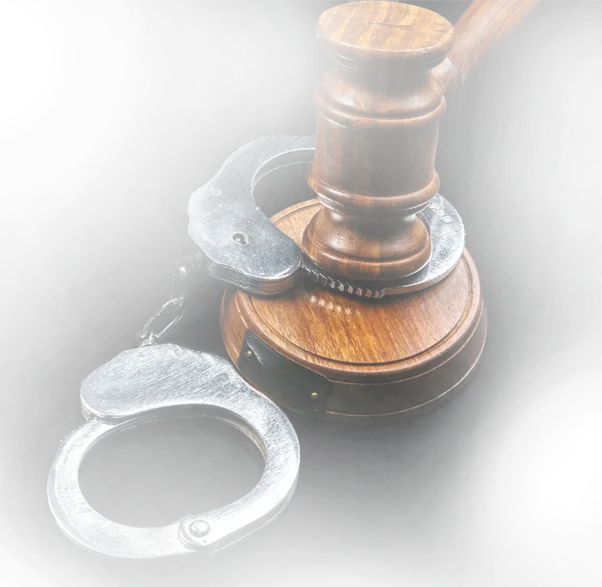New Jersey Conspiracy Lawyer

Conspiracy Attorney in New Jersey
Knowledgeable Criminal Defense Lawyer Defends Clients in the East Brunswick Area Against Serious Federal Charges
Conspiracy has always been a murky term in criminal law, and when the charge is brought in U.S. District Court, it can be even more confusing. In the federal criminal justice system, a conspiracy charge related to drug trafficking or large-scale fraud operations can expose you to a severe risk of punishment. The New Jersey conspiracy attorney at Michael Rosas Law PC represents people in the East Brunswick area and throughout New Jersey who face conspiracy charges. My experience handling federal cases and my knowledge of the laws governing conspiracy enable me to challenge the case against you to protect your rights and preserve your freedom.
What is Conspiracy?
A conspiracy is an agreement between two or more people to commit a crime, together with an overt act by at least one person to advance the illegal purpose of the conspiracy. An actual crime need not have been committed, a conspirator need not know all the details of the illegal plan, and the overt act need not itself have been a crime. The agreement is the essence of the conspiracy, not the crime itself. Conspiracy is charged as a felony even if the actual crime is a misdemeanor. That’s why it’s essential to be represented by an attorney who has successfully defended clients facing conspiracy charges.
New Jersey Attorney Advocates
For The Criminally Accused
Call For A Consultation (732) 795-9027
Experienced Litigator Defends New Jersey Clients Against Complex Federal Conspiracy Charges
In real life, a federal conspiracy offense might involve dozens or hundreds of people, with most unknown to one another, who are alleged to have participated in a complex drug trafficking or fraud scheme. Drawing on my knowledge of federal fraud law, I can work to challenge the evidence linking you to the agreement by proving that:
- The alleged overt acts were in fact innocent and unconnected to the criminal conduct.
- You withdrew from the agreement before the underlying crime occurred.
My analysis of the facts in your case will identify the best approach. It can be difficult to prove conspiracy because there is often very little physical evidence of an agreement to commit a crime. Even so, any conspiracy charge must be taken seriously and demands a strong defense. My firm has both the skill and commitment to uphold your rights when you face any type of conspiracy charge.
Contact an Experienced New Jersey Criminal Defense Firm for a Conspiracy Charge
If you face a conspiracy charge in New Jersey, Michael Rosas Law PC is prepared to provide a strong defense that upholds your rights. Call me at 732-795-9027 or contact me online to set up a free consultation at my East Brunswick office.
Have you been accused of participating in criminal activity as part of a criminal organization, or are you under investigation for the same in New Jersey? If so, you should know the government often exerts a lot of resources in these types of criminal cases. Acting quickly and proactively will be critical to your defense.
At Law Firm of Michael Robert Rosas, our New Jersey white-collar criminal defense attorney knows how to handle charges related to organized criminal activity. Because these types of cases involve alleged criminal organizations, the strategies used in defending against the charges are unique and specific to the circumstances. Contact us today at 732-795-9027 to schedule a consultation and to understand more about the stakes, the risks, and all your legal options.
What is Considered Organized Crime in New Jersey?
Organized crimes are committed in the context of operating an illegal business. They involve an association of criminals running an organized scheme for profit. These schemes usually transcend borders, both domestically and internationally. As such, though there are state-level laws criminalizing specific acts known as organized crime, the federal government has also implemented laws to define, address, counter, and punish criminal activity involving organized crime.
An important characteristic of organized crime is also unlike any other type of crime: ethnic affinity that produces strong bonds among those associated with the criminal organization. The following are examples of criminal organizations found in the United States:
- Italian mafia
- Latin American drug cartels like Cali Cartel or Sinaloa Cartel
- Bloods Gang
- Crips Gang
Organized Crime at the Federal Level
At the federal level, many organized crimes are dealt with under the Racketeer Influenced and Corrupt Organizations Act (RICO), introduced by the Organized Crime Control Act of 1970.
RICO targets racketeering activities done as part of an ongoing criminal enterprise. Under RICO, both individuals and whole enterprises can be the subject of criminal investigation and prosecution, as well as civil penalties, for participating in organized crime.
RICO includes 35 specific crimes, including:
- Acts of terrorism
- Arson
- Bankruptcy fraud or securities fraud
- Bribery
- Commission of murder-for-hire
- Counterfeiting
- Dealing in obscene matter
- Dealing or trafficking a controlled substance or chemical
- Embezzlement
- Extortion
- Fraud
- Illegal gambling
- Human smuggling
- Kidnapping
- Money laundering
- Murder
- Obstruction of justice
- Robbery
- Slavery
- Theft
To be convicted under RICO, a defendant must have engaged in racketeering activities on at least two occasions. A defendant must have also participated, invested in, or otherwise had an interest in a criminal enterprise involving interstate or foreign commerce.
Before RICO, it was difficult for authorities to prosecute the top-level members of a criminal organization, as they were not personally committing the crimes that allowed the organization to exist. Historically used to prosecute mob-related crime, RICO has since been used to target corrupt politicians, police, and judges, as well as white-collar criminals and the Hells Angels gang.
Organized Crime at the State Level
Many states have enacted similar anti-organized crime legislation. Sometimes state legislation provides for more or less than federal laws. It is important if you are in New Jersey that you contact an organized crimes defense attorney as soon as possible, but one with experience at the state and federal levels.
Organized Crime vs. White-Collar Crimes
Organized crime is often used interchangeably with white-collar crime. It is important to understand that these are not the same. Organized crime can include white-collar crime, but it encompasses much more, like
- narcotics offenses
- prostitution and human trafficking
- political corruption
- fraud offenses, like mail fraud, wire fraud, banking fraud, or Medicare fraud
White-collar crimes can be committed by an individual or an enterprise while organized crime involves a criminal organization. Two other important differences involve how the crimes are carried out.
- White-collar criminals try to unlawfully profit using a legitimate business typically not using violent means.
- Organized crime involves profiting via an illegal business while often using physical intimidation or violence.
Penalties in New Jersey for Organized Crime
A conviction of organized crime carries substantial penalties. These penalties, or the range of penalties available, depend on whether the organized crime is charged under state or federal law. The underlying offense (for example, murder versus Medicare fraud) also impacts the ultimate sentence of a conviction.
Federal Penalties
A conviction under RICO can attract large fines (up to $25,000) and significant imprisonment (up to or more than 20 years in prison). Prison sentences can increase to life if the penalty for the predicate offense is also life imprisonment.
Aside from the criminal penalties, there are severe financial consequences. A defendant’s assets can be frozen pre-trial and later forfeited to the government as proceeds of crime. The court can also order a defendant to cease an illegal activity and take steps to repair the harm, such as paying compensation and restitution to victims.
Under RICO, private citizens can bring a civil lawsuit if they experienced financial losses as a result of racketeering activity. This can result in a defendant being ordered to pay significant damages and legal fees in addition to any criminal penalty.
State Penalties
Under state law, penalties include long prison sentences, significant fines, and restitution, among other potential penalties. It is very state-specific, so you want to contact our organized crimes defense lawyer today.
Organized Crime Defenses
Like any criminal charge, you have the right to defend yourself. You also have the right to have your rights – per the U.S. constitution – that must be upheld by the State of New Jersey.
Two often-used defenses involve:
- A showing that no pattern of predicate offenses exists. Organized crime requires a pattern of behavior, meaning the defendant committed smaller crimes that indicate the defendant would commit a more serious crime. When a pattern is not present, the State may have a hard time meeting its burden of proof for organized crime, but keep in mind a lesser offense may exist.
- A showing that no criminal enterprise directing the criminal activities exists. Organized crime requires a criminal organization, and minus it, the prosecutor will lose its burden of proof. That said, there could be enough there for a charge of a lesser offense. For example, if you are charged with racketeering based on gambling. If a criminal organization does not exist, the racketeering charge may fail but the illegal gambling charge may stick.
To get the best defense possible, you need an organized crime lawyer who understands both organized crimes and all possible underlying crimes. This means your defense lawyer must know all the elements to prove each underlying offense and the defenses available to each of them.
Three Things To Do if under Investigation in New Jersey for Organized Crime
If you are under investigation for organized crime, you need to take immediate action. These things to do as soon as you know of any pending investigation is included here.
1. Speak to an attorney.
When it comes to potential RICO charges, it’s never too early to involve an attorney. So if you become aware that you’re being investigated for participating in suspected organized crime, the first thing you should do is speak to a New Jersey federal crime attorney at Law Firm of Michael Robert Rosas. We will review your case and timely provide advice relevant to your circumstances.
2. Do not try to destroy or conceal potential evidence.
It’s a crime to destroy or conceal evidence. You may already have enough legal issues to worry about, so avoiding adding to those legal woes is important. If you destroy or conceal evidence, you could be charged with obstructing justice, in addition to any RICO offenses.
3. Do not interview without first speaking to an attorney.
If you’re being investigated under RICO, federal authorities may ask you to participate in an interview. However, you should never do so without first speaking with an experienced attorney well-versed in organized crime investigations and prosecutions.
Contact an Organized Crimes Attorney in New Jersey Today
Organized crimes are complex, and any good defense requires a skilled lawyer. Not only can our organized crimes defense lawyer in New Jersey help you defend against organized criminal allegations, but we can also identify if you have been overcharged. Overcharging happens when the police charge you with more crimes than they actually believe you committed, and they do this to elicit a plea deal that’s in their favor, not yours.
Make sure you do not fall into their trap. Contact Law Firm of Michael Robert Rosas today at 732-795-9027 or by filling out our online form. We will schedule a consultation to review and discuss your case.
Fighting for the Rights of the
Accused in New Jersey
Call For A Consultation (732) 795-9027


